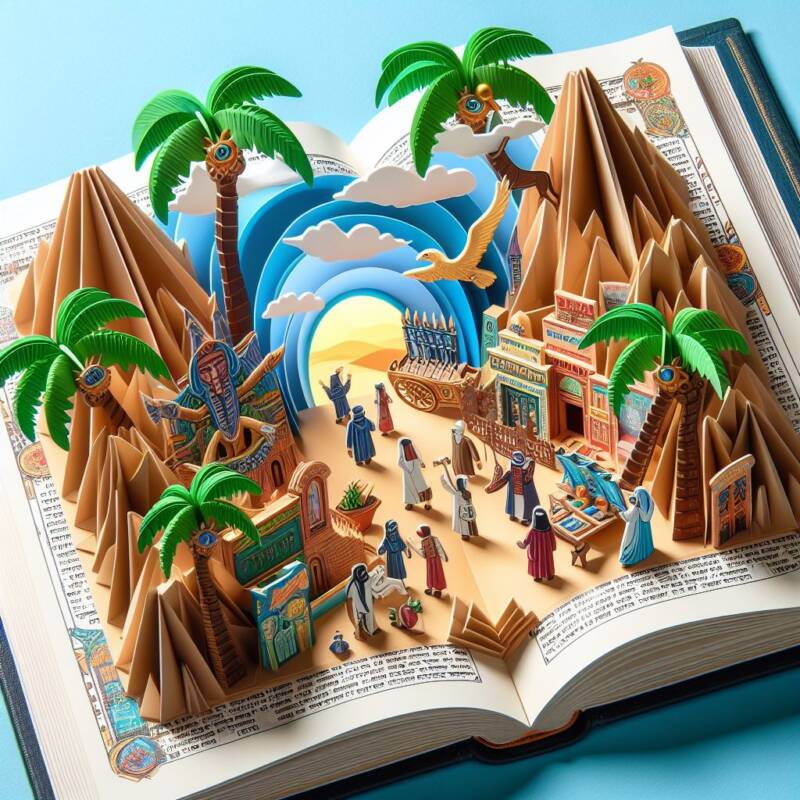When we read the Pesach story, we come across something so remarkable, it appears to be counterintuitive…
On behalf of Elaine and myself, I’d like to wish you and your families, a Chag Kasher v’Sameach, a wonderful Pesach to you, to us, to kol beit Yisrael.
Friends, you know, when you read the story of the Exodus, when you read the Pesach story, you come across something so remarkable, so counterintuitive. It’s there in parshat Bo. It’s reflected in the Haggadah itself, which is that when Moshe Rabbeinu addresses the Israelites on the very brink of their liberation, they’ve been in exile for 210 years.
They’ve been enslaved. They’ve seen their male children killed, slow genocide, and what does he talk about?
He doesn’t talk about the destination that awaited them. The “Eretz tzavat chalav u’dvash“, “the land flowing with milk and honey.” He doesn’t talk about the dangers they may face along the way. He doesn’t talk about liberty. Instead, what he does is, three times, he talks about the duty to hand on the story to your children.
1. “V’haya ki yishalcha bincha machar”, “When your child asks you in the future.” [Ex. 13:14]
2. “V’haya ki yomru aleicham beneichem”, “When your children say this to the you… so shall you say to them.” [Ex. 12:26]
3. “V’higadata levincha bayom hahu”, “You shall instruct you child on that day.” [Ex. 13:8]
Three of the four children of Haggadah occur then, before the Exodus. Now, work that out! They haven’t yet left Egypt. They haven’t had the Exodus, and already he’s talking about, in years ahead, how they will remember and recall and tell the story of their children in generations to come. It’s a most counterintuitive thing. Why is he doing it?
He’s doing it for a most profound reason. In fact, for the reason that may Jean-Jacques Rousseau, who is no slouch in political philosophy himself, regard Moses as the greatest political leader of all time, the only person ever to have endowed a people with eternity. The answer is: Nations need identity. Identity needs memory. And memory depends on the story we tell ourselves and our children as to who we are.
If you preserve that memory forever, you will preserve that people forever. It’s a fascinating story to realise that in Europe after the great wars of religion in the 16th and 17th century, there was this move, the Enlightenment, to abolish identity. We’ll all be brothers. There’ll be no more nations anymore, there’ll just be this universal of humankind.
Well, that gave way in the 19th century to the return of the repressed. Identity came back, roaring back, either in the form of nationalism, or race, or class and ideology. And that in the 20th century, nationalism gave rise to two World Wars, racism gave rise to the Holocaust, and class war gave rise to Stalin, the Gulag and the KGB.
Since the 1960s, the West has been engaged in another flight from identity, this time not into universals, but into individuals. And again, we are seeing the return of the repressed, right now, in the form of identity politics. Everyone has a grievance and everyone therefore has an identity.
And this is dividing nations within themselves. You can see it in the warfare over free speech on university campuses. Judaism says, yes, we have identities. But if we can really remember our identity all the way back to when our ancestors were slaves in Egypt, then we will use our memory, our identity, to create a free society and to extend that freedom to others, which is what Jews have always tried to do. And that is what we need. The memories that will encourage us to remember who we are, and answer the three fundamental questions all of us must ask. Who am I? Why am I here? How then shall I live?
That is why Pesach, the festival of Jewish identity, was the greatest institution ever devised, and why, when we tell our story, better still when we hear our children, or for Elaine and me, our grandchildren tell that story, we know we too are part of the Am Olam, the eternal people.
Chag Kasher v’Sameach.
[Music outro: Shimon Craimer singing “V’hi Sh’am’da”, composed and arranged by Stephen Levey, from “Israel: Home of Hope”, words and music with Rabbi Sacks, produced by Wienerworld.]

